Lawrence J. Epstein
All rights reserved . No part of this book may be reproduced in any form or by any electronic or mechanical means, including information storage and retrieval systems, without written permission from the publisher, except by a reviewer who may quote passages in a review.
Epstein, Lawrence J. (Lawrence Jeffrey)
The basic beliefs of Judaism : a twenty-first-century guide to a timeless tradition / Lawrence J. Epstein.
Includes bibliographical references and index.
ISBN 978-0-7657-0969-1 (cloth : alk. paper)ISBN 978-0-7657-0970-7 (electronic) 1. Judaism. 2. Jewish way of life. I. Title.
Acknowledgments
I sought advice for this book from people who had more knowledge than I did. They were shockingly abundant. Happily, they were also kind and generous with their time and their thoughts.
It is a ritual of politeness for authors to note that ultimately the responsibility for the contents and shape of the book rests on the writer. Such a statement is particularly important in this book because it is a strain of the imagination to believe that any of those who helped me accept all or many of the interpretations in the book. That they still helped says a lot about their character, including their intellectual tolerance and in many cases their friendship. Here are the particulars of my debt for help with the book.
Stewart Ain, a reporter at the Jewish Week in New York, who, both in his articles and in conversations, provided insights.
Rabbi Bob Alper, the worlds only practicing clergyman doing stand-up comedy... intentionally, sent me plenty of very funny jokes.
I thank Rabbi Benjamin Blech, author of such books as The Complete Idiots Guide to Understanding Judaism , for his help and his moving message to me as I was recovering from a serious health problem.
Rabbi Celso Cukierkorn always is someone I can learn from regarding conversion to Judaism. I appreciate his constant support.
Bonny Fetterman, for reading the book as a work in progress.
Rabbi Adam Fisher, an author himself, and a longtime friend, listened, probed, and then made observations and suggestions that were crucial to the books composition.
Rabbi Edward Friedman, for his reading suggestions about the issue of a Jewish mission.
Donna Halper, author and media historian, always provides materials and advice. Ive relied on her suggestions for many books.
Rabbi David Kalb is the director of Jewish education for the Bronfman Center for Jewish Life at 92nd Street Y. He offered important perspectives and insights on the issues covered in the book.
Rabbi Stephen Karol of Temple Isaiah in Stony Brook, New York, is my rabbi. Ive attended many of his classes and always learned from them.
Arthur Kurzweil is a gifted author, editor, lecturer, magician, genealogist, and student of Rabbi Adin Steinsaltz. Arthur has been my editor and a cherished friend for many decades. He provided important suggestions for the book.
Abe Novick, president of AbeBuzz, always has good ideas, perhaps because he is such a good writer.
For bibliographical advice, I turned, as I often do, to Kevin Proffitt, senior archivist for research and collections at the American Jewish Archives, who, as always, had excellent advice.
Rabbi Dr. Kerry M. Olitzky, author and executive director of the Jewish Outreach Institute, for suggesting some important reading.
Dr. Marla Segol, professor, The Institute of Jewish Thought and Culture, the University at Buffalo, for her support and suggestions.
I thank Rabbi Joseph Telushkin, author of Jewish Literacy: The Most Important Things to Know about the Jewish Religion, Its People, and Its History among many other books, for his kind words and help in adapting his account about how he came to embrace vegetarianism.
Diane Tobin, president of the Institute for Jewish and Community Research, for her suggestions.
Rabbi Joseph S. Topek, director of the Hillel Foundation for Jewish Life, Stony Brook University, made interesting observations about what subjects students were interested in learning about.
Stephen Weitzman, a member of the Union for Reform Judaisms North American Board, gave me important insights about subjects to cover in the book.
I thank Rabbi David Wolpe, author of such books as Why Faith Matters , for advice about including the story in this book about his father.
Id also like to thank Marian Guralnick, Gladys Rothbell, Dr. Richard Tuckman, and Rabbi Harvey Witman for their suggestions.
The people at Jason Aronson were wonderful to work with from beginning to end. Lindsey Porambo has a keen editorial eye matched by a warm and supportive approach. Thats a pretty good combination for an editor. Julie Kirsch, the publisher of Jason Aronson, was crucially vital in the books inception and development. Id like to thank everyone else at Jason Aronson for their first-class help as well as the three anonymous members of the Library Advisory Board for Aronson who evaluated the proposal.
Doug Rathgeb, a friend for fifty years, always listens and, as a writer himself, always has helpful advice.
My great friend Assemblyman Mike Fitzpatrick provided invaluable help along the way. What would I do without him?
Don Gastwirth, my literary agent, is always there. His brother, Dr. Joseph Gastwirth, is a constant source of well-wishes and support.
My cousins Toby Everett and Dr. Sheldon Scheinert are closer than cousins. They have always provided a supply of pleasure and strength for me.
My brother, Richard, always receives a call from me when I get an idea for a book. I wont proceed without his advice and help. His wife, Perla, and their children and grandchildren are wonderful in their help.
My late parents, Fred and Lillian Epstein, of blessed memory, showed me how to lead a moral life. All my work is in their honor.
My love and admiration for my children is unbounded. Michael and his wife, Sophia Cacciola; Elana Reiser and her husband, Justin; Rachel Eddey and her husband, John; and Lisa Christen and her husband, Florian, all are beyond generous in their devotion, time, intelligence, and kindness. Each has helped me with this book. I also thank all my in-laws and other relatives who are part of the family life.
My grandchildren are the special lights in my life.
My wife, Sharon, is irreplaceable in her encouragement, her companionship, and her love. Shes the one who has had to provide help during a difficult time in my life and had to listen to what must have seemed like my endless mutterings, concerns, and expressions of joy about the career of this book.

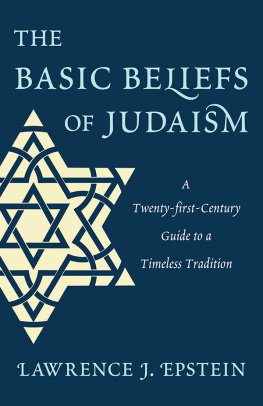
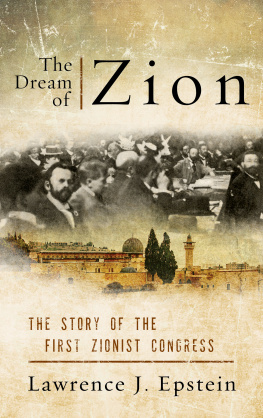




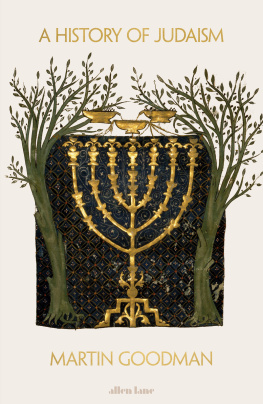
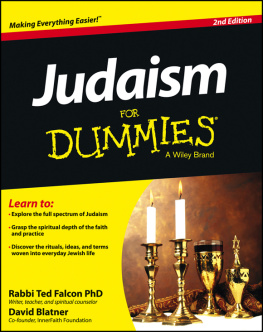
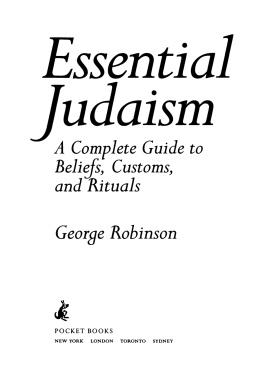
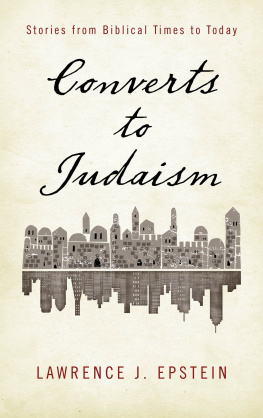
 The paper used in this publication meets the minimum requirements of American National Standard for Information SciencesPermanence of Paper for Printed Library Materials, ANSI/NISO Z39.48-1992.
The paper used in this publication meets the minimum requirements of American National Standard for Information SciencesPermanence of Paper for Printed Library Materials, ANSI/NISO Z39.48-1992.